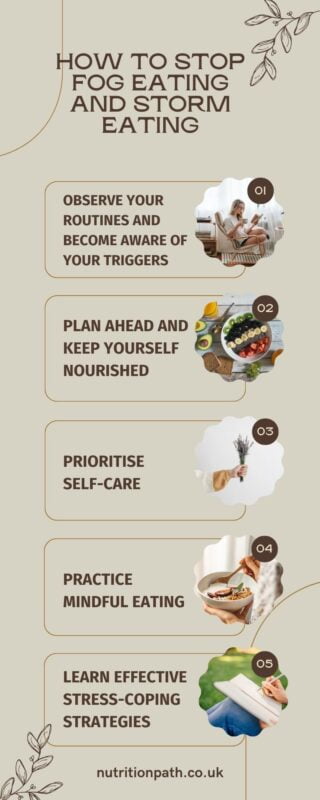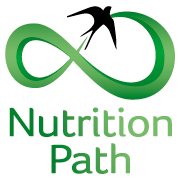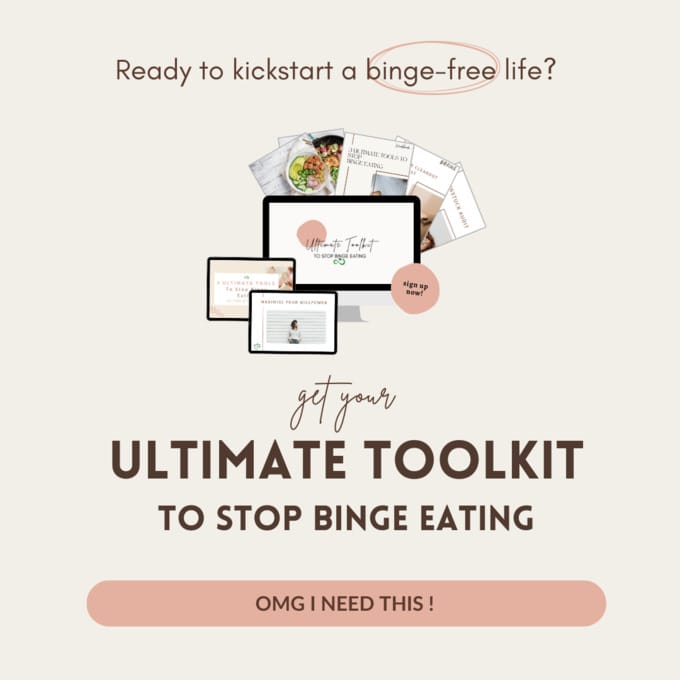Written by Milda, Registered MSc Nutritional Therapist and NCFED-trained practitioner specialising in binge eating and emotional eating. With roots in Bath & Bristol, UK , working globally online.
Have you ever opened a box of chocolates and sat down to watch a film, just to realise you’ve finished the whole box without even blinking? Or maybe you’ve come home after a long day’s work and just raided the fridge in about 2 min? In my UK nutritional therapy clinic, my clients often report being puzzled and horrified how they managed to eat a block of cheese, half a loaf of bread and a pack of crisps in just under 30min. If you can relate, you might be experiencing fog or storm eating.
Fog eating and storm eating are two different types of mindless eating. Fog eating is when you graze or snack without awareness (often out of stress or habit). Storm eating is more urgent and intense — eating fast, compulsively, or past fullness.
Both can lead to guilt, overeating, and feeling out of control around food.
On the other hand, Storm Eating is eating excessively or/ and really quickly. Also, without paying attention to what and how is actually eaten.
You may be experiencing fog or storm eating or feel like your mindless eating habits are creating guilt and shame and are affecting your well-being. In the article I share some key steps that I focus on when I’m working with a client to change unhelpful food habits. So you can start to apply and prioritise them for yourself right away.
Here’s how to recognise which one you’re experiencing and what to do next.
What Is Fog Eating?
If you find yourself mindlessly reaching for food out of habit you likely are experiencing Fog Eating. It can be influenced by environmental cues, such as seeing nachos at a party. Even if you’ve just had a big dinner. Similarly, walking past a bakery and getting cake, just because,
If this has been a habit for a while, it sure can be tricky to recognise when it’s actually happening. That is until you ‘wake up’ and notice the wrappers or realise you’re approaching the end of the chocolate bar. Fog eating is often followed by feelings of regret and guilt and promises to ‘do better’ next time. But the next time you’re in a situation like this, you fall for the same triggers.
A study of 158 filmgoers by Wansink and Kim (2005) found that people tend to eat about 33.6% more when they are distracted. That can happen while watching TV, being engrossed in your phone or reading. Using larger bowls also led to a 31% increase in the average amount of popcorn eaten. Some participants were given stale popcorn and even when food wasn’t tasting as good, people ate more.
Another study found that people often underestimate how much they eat when they eat mindlessly, leading to increased calorie intake. This is especially true when the food is high in fat and sugar, such as fast food or sweet stuff.
It’s clear from these studies that mindless eating has a profound effect on our dietary habits and health. Even if we are unaware of it!

Get your FREE Cheatsheet
9 MINDSET MISTAKES
THAT KEEP YOUR STUCK
IN THE BINGE CYCLE
Practical Ways to Stop Fog Eating
Recognising when Fog Eating is happening requires switching your brain in and some conscious effort. Also, detective work towards mindfulness and awareness of your eating habits. This isn’t about drastic changes overnight; instead, it’s a journey of self-discovery and understanding.
Start by paying close attention to your diet, eating patterns and triggers. Are there specific times, places, or emotions that prompt you to eat mindlessly?
Do you tend to reach for food when you’re feeling stressed, bored, or lonely? Every time you feel the urge to eat, pause for a moment. Ask yourself, “Am I really hungry, or is there something else going on?”
What Is Storm Eating?
Storm Eating is characterised by much more extreme behaviour and often has a compulsive element to it. Generally, storm eaters tend to consume large amounts of food in a very short space of time.
If you find yourself eating uncontrollably, it may be a sign that your food relationship needs some extra attention and care. Behaviours, such as going back for seconds or thirds, or eating past the point of fullness consistently might be giveaways.
However, eliminating Storm Eating is very possible – even if it can feel like an overwhelming task at first. Start small by setting yourself manageable goals. Take small breaks between each bite or make sure to chew your food slowly.
Also, make sure that you regularly nourish yourself during the day, starting with a balanced breakfast. If you skip this breakfast, you will likely have cravings and urges for food that will continue for the rest of the day and feel out of control.

How Mindless Eating Impacts Your Health
Mindless Eating (whether it’s fog or storm eating) can have lasting effects on both physical and mental health. It can lead to feelings of guilt, shame, and regret afterwards which in turn affects how you feel about yourself. Mindless eating can also create an unhealthy relationship with food and cause you to make food choices that you are proud of.
The study mentioned earlier on 158 filmgoers confirms that mindless eating can lead to weight and health concerns. Consistently consuming a 1/3 more energy than needed can lead to weight gain and may increase diabetes risk for some.
However, the psychological impact of mindless eating can be as concerning. A research article in the Journal of Health Psychology highlighted the connection between mindless eating and negative emotions. Guilt, shame and distress can further increase excessive food intake, highlighting the connection with the vicious cycle of emotional eating.
Lastly, a study from The Journal of Nutrition revealed how mindless eating can disrupt signals of fullness in the brain. This can lead to a continuous feeling of hunger and potential overeating. So if you ever felt like you can’t get full, yet often engage in mindless eating, your body may have (unhealthily) adjusted to that. Not only that contributes to weight gain but also fosters dependency on food for comfort.
Fog/Storm Eating vs Binge Eating Disorder (BED)
Fog and Storm Eating are concepts that describe some of the more common types of mindless eating/ disordered eating. While Binge Eating Disorder is an officially diagnosed eating disorder. BED is characterised by recurrent episodes of uncontrolled overeating accompanied by feelings of guilt or distress.
People with BED tend to eat more quickly than normal during binge episodes. They consume larger amounts of food than most people would in the same amount of time. Also, they often eat until feeling uncomfortably full. In comparison to fog/storm eating, BED is more severe and more likely to cause serious physical health problems and requires specialist support.
Comparison Table: Fog Eating vs Storm Eating vs Binge Eating Disorder
| Behaviour | Fog Eating | Storm Eating | Binge Eating Disorder (BED) |
| What it is | Mindless or distracted eating, often without awareness | Fast, urgent, compulsive overeating | Recurrent episodes of uncontrollable overeating meeting clinical criteria |
| Level of Awareness During Eating | Low awareness / autopilot | Partial awareness but feels driven | Often dissociation or loss of control |
| Amount of Food | Moderate or large portions over time | Large amounts in a short period | Very large amounts within a defined “binge episode” |
| Speed of Eating | Slower or distracted | Rapid | Very rapid |
| Emotional State | Boredom, stress, habit | Stress, urgency, overwhelm | Shame, distress, guilt both before and after |
| Triggers | Cues, habits, environment, emotions | Blood sugar dips, restriction, emotions | Complex emotional, psychological, and physiological factors |
| Sense of Control | Some control but disconnected | Low control | Loss of control (diagnostic requirement) |
| Aftermath | Regret, guilt, “Why did I eat that?” | Feeling out of control, physical discomfort | Intense guilt, shame, distress; can affect functioning |
| Is it an Eating Disorder? | No- signs of disordered eating | No- signs of disordered eating | Yes — a recognised eating disorder (DSM-5) |

Are “fog eating” and “storm eating” the same as mindless eating or emotional eating?
Fog eating is a form of mindless eating, where you eat without full awareness (often grazing).
Storm eating is more intense, similar to compulsive emotional eating, where you eat quickly or urgently in response to feelings.
Both are types of emotional eating, but not the same as Binge Eating Disorder (BED).
How to Stop Fog Eating or Storm Eating: 5 Effective Strategies
Whether you’re experiencing mindless eating, or even binge eating episodes, breaking free from these habits is achievable with the right strategies. Let’s delve into five effective techniques to regain control and foster healthier eating habits.
1. Observe your Routines and become Aware of your Triggers
The first step to breaking the cycle of mindless eating is to become conscious of your routines and triggers. Start by keeping a food diary and writing down everything that you eat in a day, including snacks. Add feelings, emotions and events you think may be helpful to the food journal.
Over time, patterns will start to emerge—notice what emotions you experienced before or after eating, and in which circumstances those emotions occurred, as these could be essential keys towards awareness.
Some of my clients find it helpful to write down the list of events that led to the mindless eating episode, which sometimes can even be 1-2 days before. Then, use different colours to underline emotional and physical triggers to gain clarity.
2. Plan ahead and keep yourself Nourished
Planning ahead will help you to stay in control and help you feel more relaxed around food. Prepare meals and snacks for the week or a few days ahead, focusing on nutrient-dense foods. That way you won’t find yourself reaching for convenient or ultra-processed foods that imbalance you further.
Majority of clients in my nutritional therapy clinic see a real transformation in their relationship with food, once they prioritise meal planning.
If you know that your cravings might hit during certain times of the day, make sure to eat at regular intervals (not more than 4-5 h between meals) as this helps maintain blood sugar levels. It also prevents overeating and keeps your energy levels stable.
A food journal could help you figure out what balance of fuel foods versus fun foods you have daily. Often, the balance is not what our brain tells us.
3. Prioritise Self-Care
Self-care has a HUGE part to play in changing your relationship with food. Turning to food for comfort or different emotions often stems from a lack of “me time” or properly tending to emotions that arise.
Make sure to implement activities in addition to a balanced diet, that will nurture your well-being. For instance, my client Sarah (name changed) found short walks around the garden super-helpful, while Anna found 5 min stretches on the yoga mat enough to dissolve binge urges. Laura found just having time to apple moisturiser or have a cup of tea game-changing. Which simple strategies work for you?
During your self-care routine, aim to take the time to reflect on how you‘ are‘re feeling. Reflection can help you learn more about yourself and your triggers and reduce stress levels. In turn, this will help prevent you from reaching for food to cope with difficult emotions and situations.

4. Practice Mindful Eating
Mindful Eating definitely requires practice, so start slowly, one bite at a time. Figure out how long it takes you to eat a meal and aim to increase that to 15-20 min for bigger meals. Allow yourself to be mindful and present whilst eating.
While many of my clients find mindful eating a tricky practice, it’s also one of the most rewarding ones. Imagine, if you figure out mindful eating, then you have an in-built system that helps you naturally monitor your food intake and habits without starving, punishing or depriving yourself. And the best part- you can take it everywhere with you!
Savour the flavours and textures of your food, connect with your body’s hunger and fullness signals and needs in order to make more balanced and nourishing choices. If mindless eating has become a habit, you might find yourself mindlessly reaching for food even when you’ve had enough.
So next time you find yourself mindlessly eating, practice pausing and taking the time to assess what you need. How hungry are you? What do you really need right now? This will help break down old habits and make way to establishing a healthier relationship with food.
5. Learn effective stress-coping strategies
It is important to recognise that emotions and especially stress can be a trigger for mindless eating. The best way to break this cycle is by learning effective strategies to support your unique brain health and cope with these triggers before they take over.
Some activities that can help include exercise, meditation, journaling and mindfulness practices such as breathing techniques. These activities can help you acknowledge your thoughts and feelings and help better manage them, without turning to food. Yet, it’s important to try a few different techniques and find your go-to strategies.
When to Get Support for Mindless Eating
If your mindless eating habits are taking over your life and affecting your physical or mental health, it might be worth considering getting professional help. Majority of clients that come through my clinic door in my online practice in the UK and globally don’t have a diagnosed eating disorder and even feel like “they’re not sick enough”. However, if your food habits are causing you feeling miserable every single day, consider getting help with your food habits.
Professional support could help you understand what’s keeping you stuck in the cycle of mindless eating and how to get out.
There are plenty of professionals who specialise in problems with food, from counsellors, psychotherapists and nutritional therapists. They can provide support on developing healthier habits and coping strategies that can empower you to take back control of your relationship with food.
The Bottom Line
Mindless eating can be a response to stress, boredom or anxiety that causes us to turn to food even when we’re not hungry.
Try out mindful eating, and different coping strategies or get professional help. There are plenty of ways you can get support and bring balance to your relationship with food.
If you’re feeling overwhelmed or stuck when it comes to managing food habits, reach out to a nutritional therapist and ask for help. Understanding the root causes of your eating problems will give you back control over your life and empower you to make peace with food for good!
Do you experience any of these types of mindless eating? Let me know in the comments what your struggles around food are and what strategies help you 👇👇👇
FAQ About Fog Eating and Storm Eating
-
What is fog eating and storm eating? Are they the same as emotional eating?
Fog eating is mindless eating — snacking or grazing without awareness and often feeling like you’re “not fully present.” Storm eating is more intense and compulsive, where you eat quickly or in urgency, often finishing large amounts of food rapidly. Both can overlap with emotional eating because they’re triggered by internal states (stress, boredom, overwhelm) rather than true physical hunger.
-
What triggers fog eating and storm eating?
Triggers differ from person to person, but common ones include:
– stress or emotional overwhelm
– boredom or loneliness
– overeating habits linked to certain places or routines (car, sofa, TV)
– seeing or smelling food
– irregular eating, skipping meals or not being nourished properly.
When the body or brain feels depleted, mindless eating becomes much more likely. -
How can I stop fog eating or storm eating in the moment?
The first step is awareness. Once you notice you’re eating on autopilot, slow everything down.
Try:
Pause — put the food down for 10–20 seconds.
Check in — “What’s happening? What am I needing right now?”
Shift the state — change the environment or your movement: a short walk, shower, stretching, music, or a distraction break.
These small interruptions help break the automatic cycle. -
How do I know if I’m truly hungry or if it’s fog/storm eating?
If your eating habits are irregular, it can be hard to recognise real hunger.
Try eating regular, balanced meals for 1–2 weeks. Once your body is steadier, hunger cues become clearer.
A quick check:
Physical hunger builds gradually, is felt in the stomach, and improves with food.
Fog/storm urges feel urgent, emotional, or triggered by a situation rather than physical cues. -
What strategies help stop fog and storm eating long-term?
To reduce mindless eating sustainably, focus on:
– Noticing your patterns (keep a simple food + feelings journal)
– Staying well-nourished (regular meals, balanced snacks)
– Prioritising self-care so food isn’t the main coping tool
– Planning ahead so food choices aren’t left to chance
Once you understand your triggers, you can respond in a healthier, more supportive way.
References/ Further reading
Wansink, B., & Kim, J. (2005). Bad popcorn in big buckets: portion size can influence intake as much as taste. Journal of nutrition education and behavior, 37(5), 242–245. https://doi.org/10.1016/s1499-4046(06)60278-9
Oakes, M.E., Slotterback, C.S. Prejudgments of those who eat a “healthy” versus an “unhealthy” food for breakfast. Curr Psychol 23, 267–278 (2004). https://doi.org/10.1007/s12144-004-1001-6




One thought on “Fog Eating vs Storm Eating: What They Are, Why They Happen & How to Stop Them for Good”